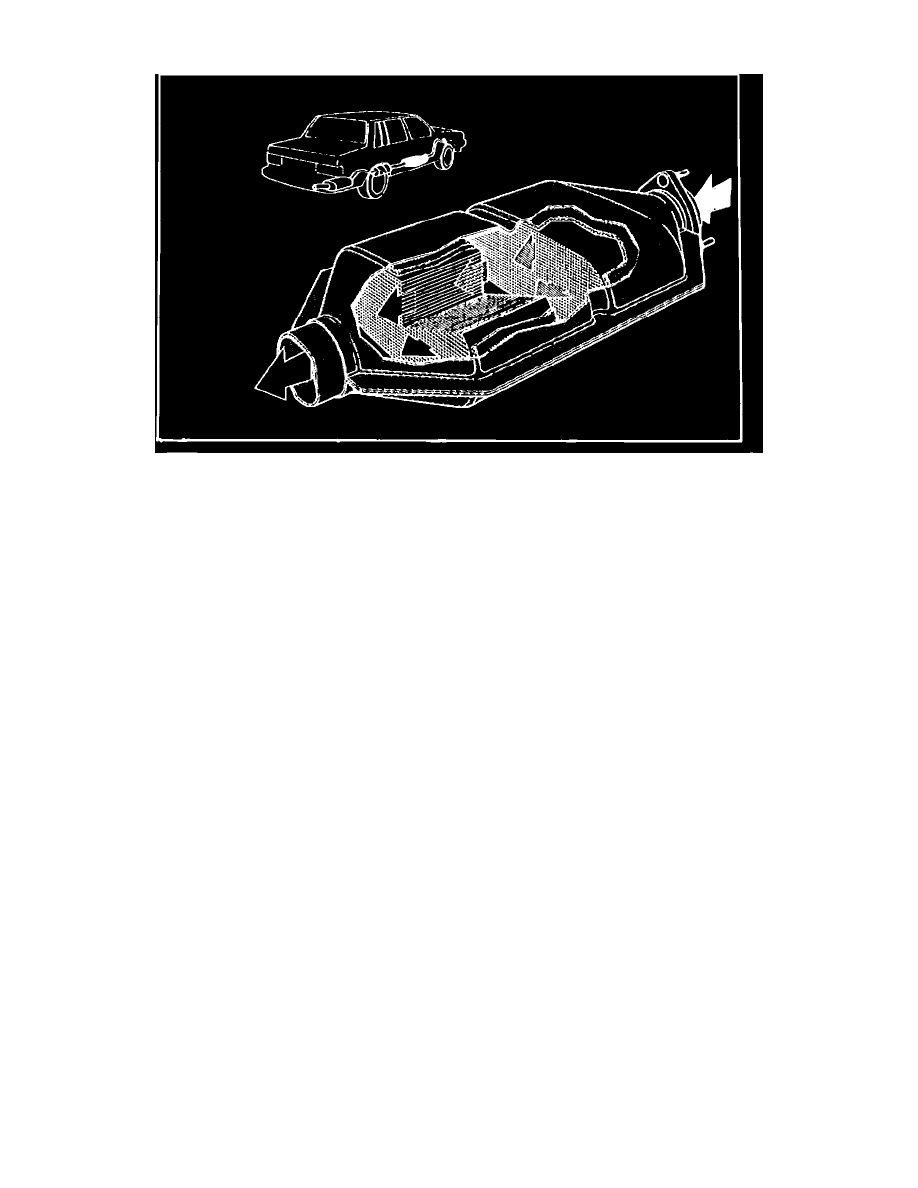240 L4-2.3L SOHC VIN 88 B230F (1986)

Catalytic Converter: Description and Operation
Fig. 6 CATALYTIC CONVERTER
The purpose of the three-way catalytic converter is to neutralize carbon monoxide, hydrocarbons and oxides of nitrogen in the exhaust gases leaving the
engine. This is achieved by converting carbon monoxide and hydrocarbons to carbon dioxide and water. Also, oxides of nitrogen are converted to
nitrogen and water.
This chemical conversion is caused by the platinum / rhodium metals in the catalytic converter. The exhaust gases are forced by these noble metals in
the converter, inducing the chemical reaction. The noble metal content is about two grams of platinum / rhodium.
The effective conversion of pollutants begins at an operating temperature of about 250°C (450°F). The ideal operating temperature is 400°C - 800°C
(750°F - 1500°F). Engine malfunctions, for example misfires, can cause the temperature of the converter to increase to more than 1400°C (2500°F).
Such temperatures lead to the complete destruction of the converter through the melting of the substrate material.
Using leaded fuel will damage the converter and quickly render it ineffective, by coating the noble metals with lead deposits.
